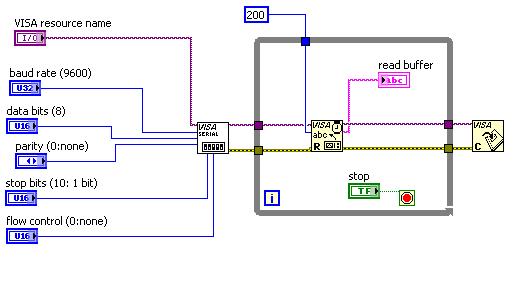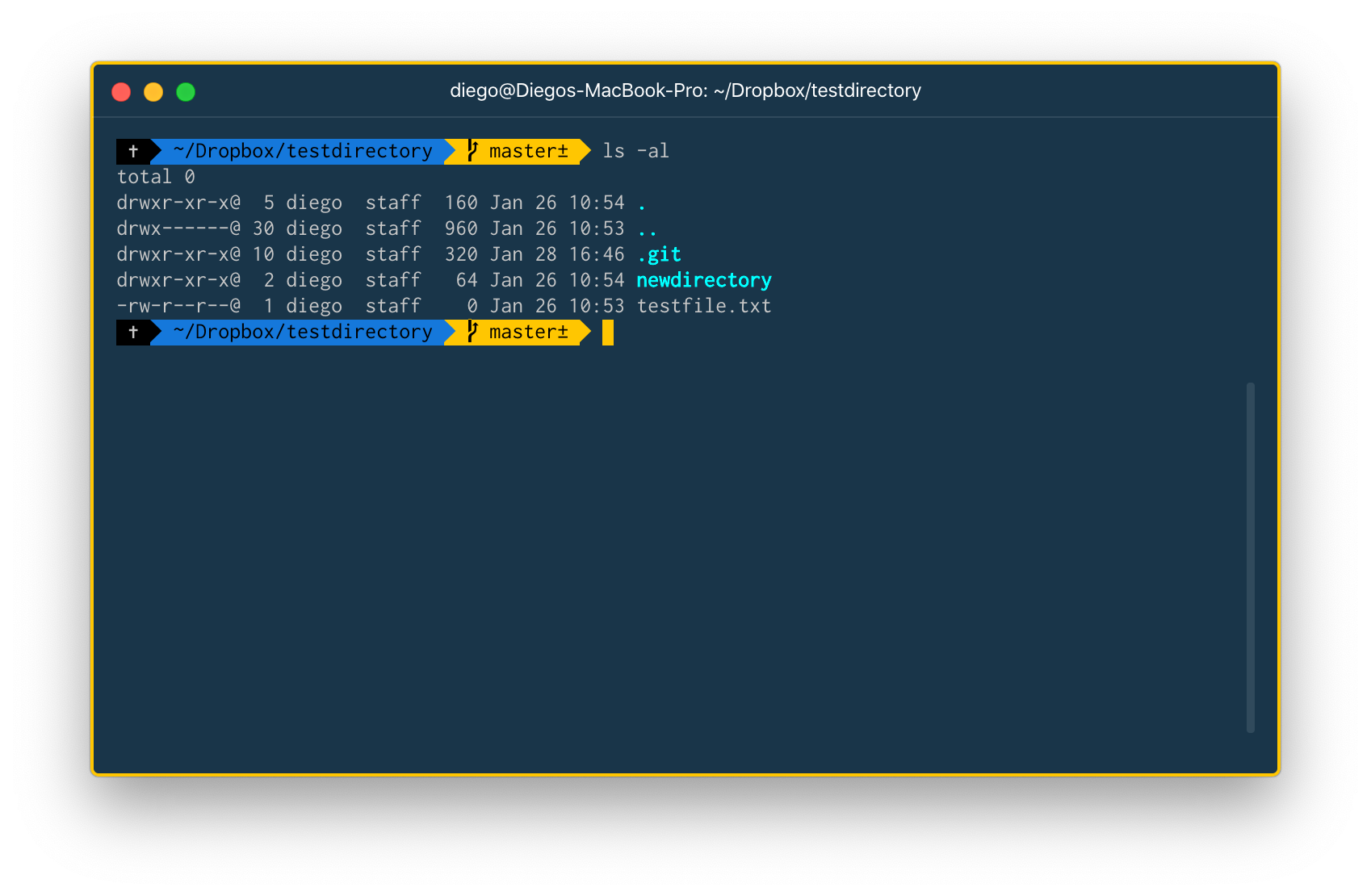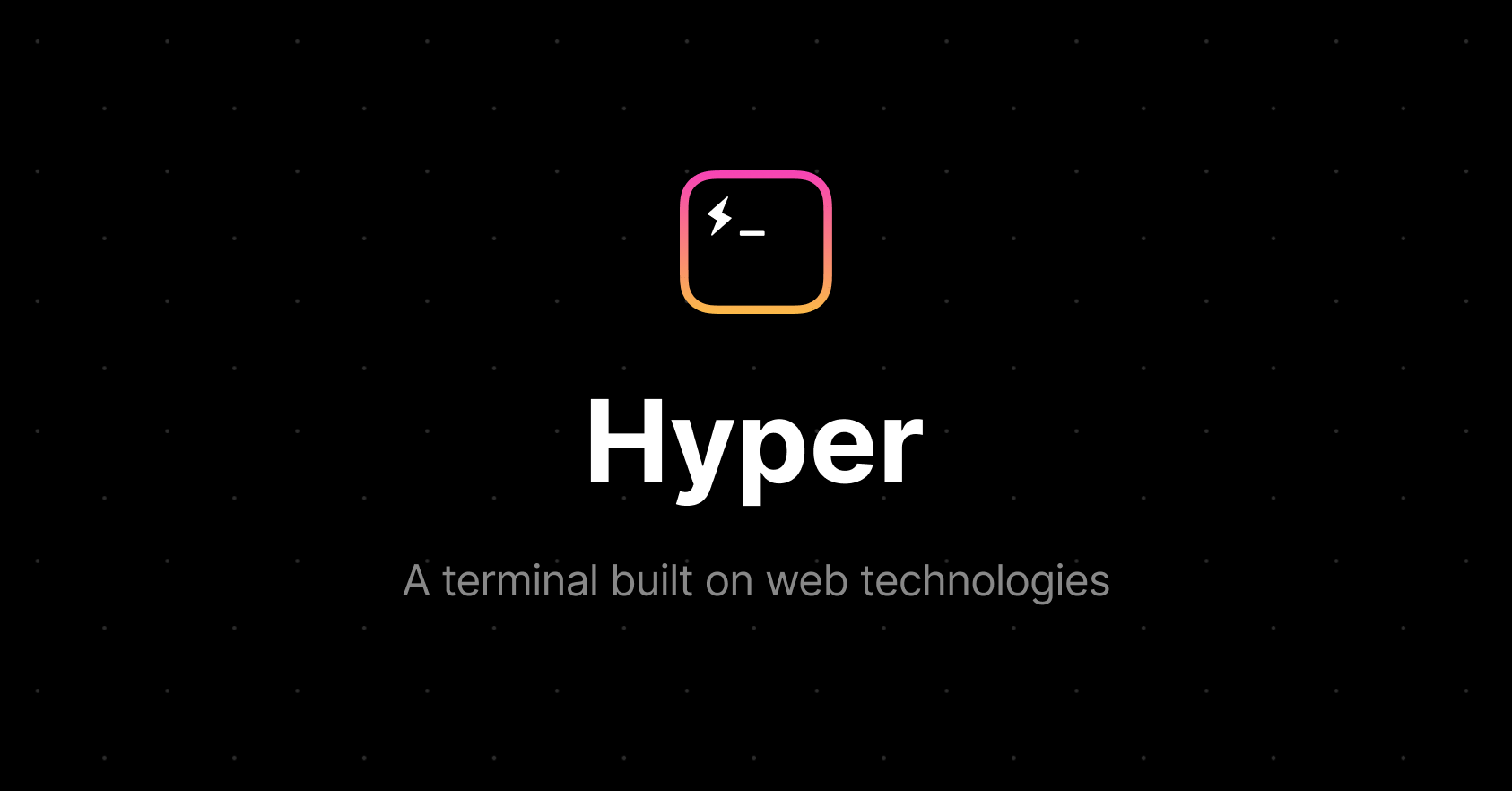Hyperterminal For Mac
Installation
- Microsoft Hyperterminal Download Free
- Hyperterminal For Android
- Hyperterminal Application For Mac
- Hyperterminal For Mac Os X
- Hyperterminal For Macbook Pro
- Hyper Mac Terminal
| 64-bit | |
| macOS (.app) | 3.0.2 |
| Windows (.exe) | 3.0.2 |
| Debian (.deb) | 3.0.2 |
| Fedora (.rpm) | 3.0.2 |
| Other Linux distros (.AppImage) | 3.0.2 |
Project Goals
The goal of the project is to create a beautiful and extensible experience for command-line interface users, built on open web standards. In the beginning, our focus will be primarily around speed, stability and the development of the correct API for extension authors.

In the future, we anticipate the community will come up with innovative additions to enhance what could be the simplest, most powerful and well-tested interface for productivity.
Extensions
Extensions are available on npm. We encourage everyone to includehyper in the keywordsfield in package.json.
Then edit .hyper.js and add it to plugins
Extensions are universal Node.js modules loaded by both Electron and the renderer process. The extension system is designed around composition of the APIs we use to build the terminal: React components and Redux actions. Instead of exposing a custom API method or parameter for every possible customization point, we allow you to intercept and compose every bit of functionality! HyperTerminal Private Edition is a terminal emulation program that supports communications over TCP/IP networks, Dial-Up Modems, and serial COM ports.
Hyper will show a notification when your modules are installed to .hyper_plugins.
HyperTerminal Alternatives One great free alternative to HyperTerminal is the Windows Remote Shell or WinRS command. WinRS is a command line that can replace SSH. So if you used HyperTerminal just to SSH into a server you can use the WinRS command to do so. To run WinRS for SSH access, open the command prompt.
Keymaps
All command keys can be changed. In order to change them, edit.hyper.js and add your desired change to keymaps.
Then Hyper will change the default with your custom change.
Example: 'window:devtools': 'Cmd+Alt+O'
Default keymaps:
Configuration
Config location
| macOS | ~/Library/Application Support/Hyper/.hyper.js |
| Windows | $Env:AppData/Hyper/.hyper.js |
| Linux | ~/.config/Hyper/.hyper.js |
Note: config at ~/.hyper.js still supported, but will be ignored, if config in application directory present. Otherwise it will be moved to the application directory at first run.
The config object seen above in.hyper.js admits the following
| Property | Default | Description |
updateChannel | 'stable' | The update channel to receive updates from |
fontSize | 12 | The default size in pixels for the terminal |
fontFamily | 'Menlo, DejaVu Sans Mono, Lucida Console, monospace' | The font family to use with optional fallbacks |
uiFontFamily | '-apple-system, BlinkMacSystemFont, Segoe UI, Roboto, ...' | The font family to use for the UI with optional fallbacks |
fontWeight | 'normal' | The default font weight: 'normal' or 'bold' |
fontWeightBold | 'bold' | The font weight for bold characters: 'normal' or 'bold' |
cursorColor | 'rgba(248,28,229,0.8)' | The color of the caret in the terminal |
cursorAccentColor | '#000' | The text color under BLOCK cursor |
cursorShape | 'BLOCK' | The shape of the caret in the terminal. Available options are: 'BEAM', 'UNDERLINE', 'BLOCK' |
cursorBlink | 'false' | If true, cursor will blink |
foregroundColor | '#fff' | The color of the main text of the terminal |
backgroundColor | '#000' | The color and opacity of the window and main terminal background |
selectionColor | 'rgba(248,28,229,0.3)' | The background color/opacity of the text selection in terminal |
borderColor | '#333' | The color of the main window border and tab bar |
css | ' | Custom CSS to include in the main window |
padding | '12px 14px' | CSS padding values for the space around each term |
colors | { black: '#000000', red: '#ff0000', ... } | A list of overrides for the color palette. The names of the keys represent the 'ANSI 16', which can all be seenin the default config. |
shell | ' | A path to a custom shell to run when Hyper starts a new session |
shellArgs | '['--login']' | An array of shell arguments |
env | {} | An object of environment variables to set before launching shell |
windowSize | [540, 380] | The default width/height in pixels of a new window |
scrollback | 1000 | The number of rows to be persisted in terminal buffer for scrolling |
copyOnSelect | false | If true, selected text will automatically be copied to the clipboard |
quickEdit | false | If true, on right click selected text will be copied or pasted if no selection is present (true by default on Windows) |
defaultSSHApp | true | If true, Hyper will be set as the default protocol client for SSH |
modifierKeys | {altIsMeta: false} | Change the behaviour of modifier keys to act as meta key |
showHamburgerMenu | true on Linux/Windows, false on macOS | Change the visibility of the hamburger menu. Available options are: true, false |
showWindowControls | ' | Change the position/visibility of the window controls. Available options are: true, false, 'left' |
Extensions API
Extensions are universal Node.js modules loaded by both Electron and the renderer process.
The extension system is designed around composition of the APIs we use to build the terminal: React components andRedux actions.
Instead of exposing a custom API method or parameter for every possible customization point, we allow you to intercept and compose every bit of functionality!
The only knowledge that is therefore required to successfully extendHyper is that of its underlying open source libraries.
You can find additional details about plugin developmentin the Hyper repository.
Your module has to expose at least one of these methods:
| Method | Invoked from | Description | ||||||
onApp | Electron | Invoked when the app first loads. If a plugin reloads, it's invoked again with the existing app. Parameters:
| ||||||
onWindow | Electron | Invoked when each window is created. If a plugin reloads, it's invoked again with the existing windows. Parameters:
| ||||||
onUnload | Electron | Invoked when a plugin is removed by the user. Parameters:
| ||||||
decorateConfig | Electron / Renderer | v0.5.0+. Allows you to decorate the user's configuration. Parameters:
| ||||||
decorateEnv | Electron | v0.7.0+. Allows you to decorate the user's environment by returning a modified environment object. Parameters:
| ||||||
decorateMenu | Electron | Invoked with the Electron's Parameters:
| ||||||
decorateBrowserOptions | Electron | Allows you to decorate Electron's Parameters:
| ||||||
onRendererWindow | Renderer | Invoked when a plugin is first loaded or subsequently reloaded in each window. Parameters:
| ||||||
middleware | Renderer | A custom Redux middleware that can intercept any action. Subsequently we invoke the | ||||||
reduceUIreduceSessionsreduceTermGroups | Renderer | A custom reducer for the
| ||||||
getTabsProps | Renderer | Passes down props from
| ||||||
getTabProps | Renderer | Passes down props from
| ||||||
getTermGroupProps | Renderer | Passes down props from
| ||||||
getTermProps | Renderer | Passes down props from
| ||||||
mapHyperStatemapTermsStatemapHeaderStatemapNotificationsState | Renderer | A custom mapper for the state properties thatcontainer componentsreceive. Note that for children components to get these properties, you have to pass them down using the corresponding methods (like Must return an extended object of the map passed.
| ||||||
mapHyperDispatchmapTermsDispatchmapHeaderDispatchmapNotificationsDispatch | Renderer | A custom mapper for the dispatch properties. Must return an extended object of the map passed.
| ||||||
decorateHyperdecorateNotificationsdecorateNotificationdecorateHeaderdecorateTabsdecorateTabdecorateTermsdecorateTermGroupdecorateSplitPanedecorateTerm | Renderer | Invoked with the Parameters:
|
Module loading
The user can hot-load and hot-reload plugins by pressing Command + R (refresh). Please strive to make plugins that don't require a complete restart of the application to work.
Notice
Plugins affecting the `BrowserWindow` will the effect on new windows after hot-reload.
In the future we might do this automatically.
When developing, you can add your plugin to.hyper_plugins/local and then specify it under the localPlugins array in.hyper.js. We load new plugins:
- Periodically (every few hours)
- When changes are made to the configuration file (
pluginsorlocalPlugins) - When the user clicks Plugins > Update all now
The process of reloading involves
- Running
npm pruneandnpm installin.hyper_plugins. - Pruning the
require.cachein both electron and the renderer process - Invoking
on*methods on the existing instances and re-rendering components with the fresh decorations in place.
Plugins location
| macOS | ~/Library/Application Support/Hyper/.hyper_plugins |
| Windows | $Env:AppData/Hyper/.hyper_plugins |
| Linux | ~/.config/Hyper/.hyper_plugins |
Note: plugins at ~/.hyper_plugins still supported, but will be ignored, if plugins in application directory present. Otherwise they will be moved to the application directory at first run.
Note: on the main process, plugins are registered as soon as possible (we fire onLoad). On the browser, it's up to the user to trigger their load by pressing command+R. We put the user in control of the loading in this way to prevent them from losing critical work by extensions that reset state or don't preserve it correctly.
Decorating components
We give you the ability to provide a higher order component for every piece of the Hyper UI.
Its structure is as follows:
All the decorate* methods receive the following references in an object passed as the second parameter:
React | The entire React namespace. |
notify | A helper function that shows a desktop notification. The first parameter is the title, the second is the optional body of the notification, and the third is another optional parameter which can be used to log details to the development console. To pass these details, simply provide and object with an |
Notification | The Notification component in case you want to re-use it. |
All the components accept the following two properties to extend their markup:
customChildren | An array of Element or a singleElement to insert at the bottom of the component. |
customChildrenBefore | The same as the above property, but inserted as the first child element(s) of the component. |
Your higher order component can supply a onDecoratedproperty to the decorated component to get a reference to its instance.
Your Term higher order component can supply anonCursorMovehandler property that be called when cursor has moved with an object parameter representing its relative position to Term origin:
x | Horizontal position in pixels |
y | Vertical position in pixels |
width | Cursor width in pixels |
height | Cursor height in pixels |
col | Horizontal position in columns |
row | Vertical position in rows |

We encourage you to maintain compatibility with other decorators. Since many can be set, don't assume that yours is the only one.
For example, if you're passing children, compose potential existing values:
Or if you use onDecorated property
Actions and Effects
All theRedux actionsare available for you to handle through your middleware and reducers. For an example, refer to the Hyperpowerreference plugin.
Side effects occur in two fundamental forms:
- Some actions dispatch other actions based on state.
- Some actions do async work by communicating over the RPC channel to the main process
In all cases, the side effect is passed as the effect key in the action and later handled by our middleware.
This means that you can override, compose or completely eliminate effects! In other words, this is how you can change the default functionality or behavior of the app.
As an example, consider the action we use to increase the font size when you press Command+=:
The underlying terminal
Hyper achieves a lot of its speed and functionality thanks to the power ofxterm.js

Additional APIs

The Electron app objects are extended with the following properties:
config | An Object with the config block from.hyper.js. |
plugins | An Object with helpers for plugins. |
getWindows | A Function that returns an Set of all the open windows. |
createWindow | A Function that will create a new window. Accepts an optional callback that will be passed as the new window's init callback. |
Microsoft Hyperterminal Download Free
Electron BrowserWindow objects are extended with the following parameters:
rpc | An EventEmitter that allows for communication with the window process. |
sessions | A Map of Sessionobjects which hold the communication with each term's pty.. |
Renderer windows are similarly extended with:
rpc | An EventEmitter that allows for communication with the window process. |
store | The Redux Store object. This allows access todispatch actions or read the global state withgetState. |
The rpc object is symmetrical between browser and renderer process. The API is the same as Node.js, with the exception that it only admits a single object as its parameters only:
Example theme: Hyperyellow
The following extension simply alters the config to add CSS and yellow colors! Here's thecode.
Themes are simply plugins! Only one hook, decorateConfigis needed:
I grabbed the class names by inspecting the term with Devtools, which you can trigger from View -> Toggle Developer Tools. When you do so, notice that some classes are automatically generated and followed by a random nonce (e.g.: term_13hv8io). Ignore those: they change with every new window!
Notice the emphasis on playing nice with other extensions. Specifically, we create a new object, extend only the keys we are interested in, and we compose the CSS to preserve the user's setting and that of other authors':
Example extension: Hyperpower
The following extension renders particles as the caret moves:
Let's walk throughits code.
First, we intercept the Redux action SESSION_ADD_DATA. You can find the full list of actionsin the repository.
Notice that we don't re-dispatch the action, which means we never render the output of the command to the terminal. Instead, we dispatch an action of our own, which we grab in the uiReducerand later map:
Hyperterminal For Android
We then want to decorate the <Term> component so that we can access the underlying caret.
However, <Term> is not a container that we can map props to. So we use getTermProps to pass the property further down:
The extension thenreturnsa higher order component to wrap <Term>. Notice we pass the onDecoratedproperty to access the base Term component and its DOM ref, and theonCursorMove property to use Hyper cursor API:
If you are looking for information about Medicare billing with HyperTerminal you are in the right place.
Among many uses, HyperTerminal is often used is to transmit claims to Medicare EDI systems.
Hyperterminal Application For Mac
If you would like to try the HyperTerminal software you can download the free 30 day trial here

HyperTerminal Trial
You can purchase the full version here and download immediately
When used for Medicare billing HyperTerminal is used in conjunction with medicare billing software such as PC-ACE Pro32. When claims are entered into the claims-entry software and prepared, the program generates a claim file. HyperTerminal is then used to connect and log into the Medicare system to transmit the claim file for processing. HyperTerminal can also be used to retrieve remittance advices and other reports.
Hyperterminal For Mac Os X
Medicare Tutorial available
For instructions on how to create a connection to one of the Medicare systems please see our HyperTerminal Medicare Connection Tutorial.
Hyperterminal For Macbook Pro
If you have any questions about using HyperTerminal for Medicare billing please contact us at support@hilgraeve.com
Hyper Mac Terminal
For information about each Medicare system you can visit the Medicare Administrative Contractor (MAC)’s website for your MAC jurisdiction.
Medicare Jurisdiction H and L Novitas
Medicare Jurisdiction 5 and 8 WPS
Medicare Jurisdiction E and F Noridian
If you aren’t sure which Jurisdiction is yours please see the Centers for Medicare and Medicaid Services Website
